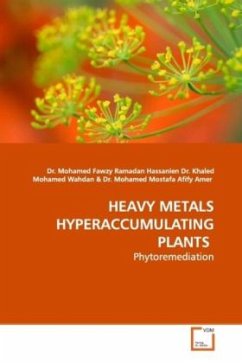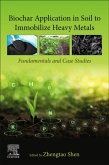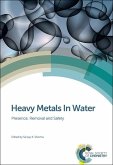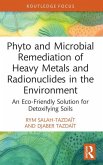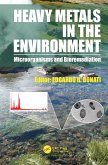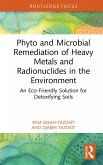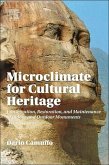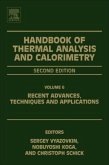Heavy metals may have deleterious effects on soil
microorganisms and plants. Excess of zinc, cadmium
and lead in soils have been linked to human health
effects, animal fatalities and the disruption of
natural ecosystems. At present, the most common clean
up technology consists of removing contaminated soil,
transporting, the soil to landfills and replacing the
soil with clean topsoil. This clean up technique does
not solve the problem; it only transfers problem soil
from one area to another in a relatively costly and
cumbersome way. Hence, the use of highly specialized
plants, which are able to accumulate high
concentrations of heavy metals in harvestable shoot
tissue, termed phytoremediation involves successive
cropping of these plants on contaminated sites. This
monograph is focus on phytoremediation as a novel
strategy for the removal of toxic metals from the
environment using plants.
microorganisms and plants. Excess of zinc, cadmium
and lead in soils have been linked to human health
effects, animal fatalities and the disruption of
natural ecosystems. At present, the most common clean
up technology consists of removing contaminated soil,
transporting, the soil to landfills and replacing the
soil with clean topsoil. This clean up technique does
not solve the problem; it only transfers problem soil
from one area to another in a relatively costly and
cumbersome way. Hence, the use of highly specialized
plants, which are able to accumulate high
concentrations of heavy metals in harvestable shoot
tissue, termed phytoremediation involves successive
cropping of these plants on contaminated sites. This
monograph is focus on phytoremediation as a novel
strategy for the removal of toxic metals from the
environment using plants.

